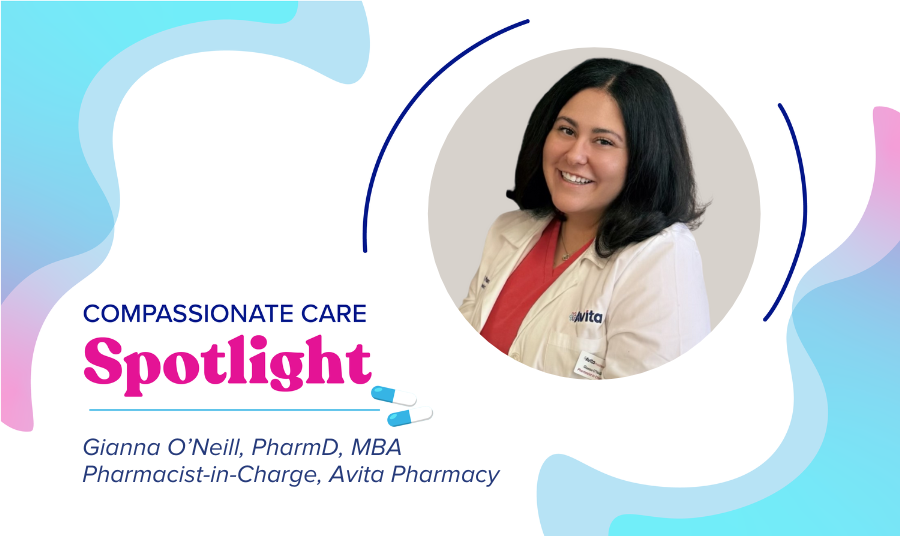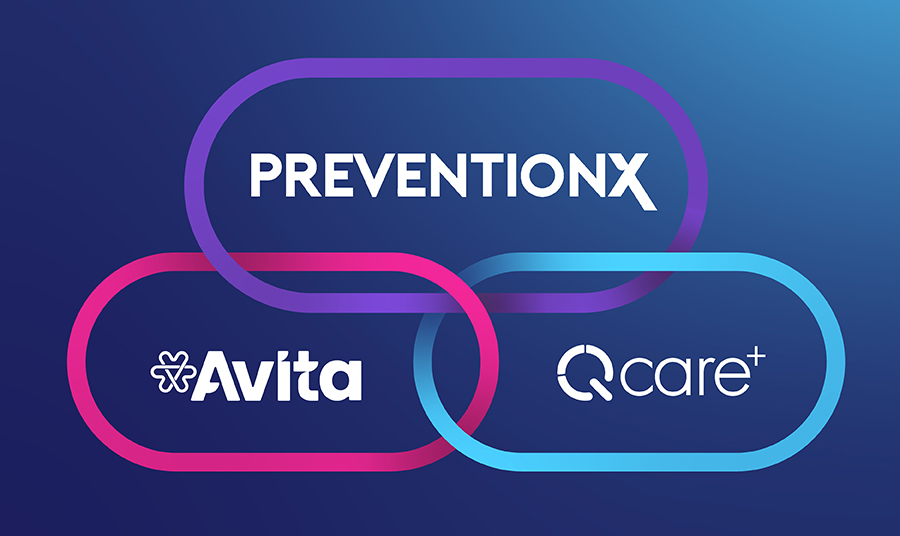The stats are both alarming and confusing. Though preventable, more than 25 million sexually transmitted infections (STIs) are diagnosed in the United States annually. The latest Centers for Disease Control and Prevention (CDC) STI Surveillance Report showed that syphilis diagnoses recently reached an apex not seen since 1950, while other infections like gonorrhea might be trending downward. And while many STIs are curable and all are manageable via medical treatment, historically marginalized populations are more likely to carry the burden of disease due to distrust of and poor access to comprehensive sexual health services.
In this edition of “The Take,” Avita Chief Advocacy Officer Glen Pietrandoni sat down with David Harvey, executive director of the National Coalition of STD Directors (NCSD), and Dr. Christopher Hall, chief medical officer of Avita Care Solutions. On the agenda? What’s behind the latest surveillance data, how a heaping dose of stigma combined with a lack of federal funding have left Americans of all walks of life vulnerable to an “out-of-control” STI epidemic, and why collaboration between the private and public sector is crucial in driving awareness and curbing the spread.
GLEN: Thanks for joining us here today, David and Dr. Hall. To kick things off, let’s talk about a topic that’s been all over the news: The CDC’s latest STI Surveillance Report shows an almost 79% increase in syphilis between 2018 and 2022. In fact, the number of syphilis cases in 2022 was the highest count the U.S. has seen since 1950. But the report shows that other STIs, like gonorrhea and chlamydia, may be on a downward trend. What’s going on?
DAVID: The first thing I would say is let’s temper our excitement about downward trends. We saw some slight reductions in rates of gonorrhea and chlamydia, but syphilis continues to explode across the U.S. We don’t know if the decline of some of these STIs is a trend yet. Overall, we’re still very concerned with the upward trajectory of STI rates in America, and there is a lot of work ahead of us to confront this. We are facing funding cutbacks. There have been COVID-19 interruptions to sexual health services in the U.S., and STIs are very stigmatized. These are just some of the factors that drive what we refer to as an out-of-control STI epidemic.
We are facing funding cutbacks. There have been COVID-19 interruptions to sexual health services in the U.S., and STIs are very stigmatized. These are just some of the factors that drive what we refer to as an out-of-control STI epidemic.
David Harvey
Executive Director, national coalition of STD Directors
The perfect STI storm: stigma, reduced funding, and drug shortages
GLEN: Talk to me a bit more about those core drivers of new STI diagnoses, specifically the dramatic change we saw in the syphilis numbers.
DAVID: Let’s start with stigma. We’re not doing enough STI screening in the U.S. Doctors aren’t comfortable conducting sexual health assessments. Patients aren’t comfortable asking questions about their sexual health. We need to break this down and make it easier for people to talk about the reality of their lives. We must ensure that patients are either requesting STI testing or that doctors and other healthcare providers are offering testing.
The CDC recently changed its STI testing recommendations to state that sexually active people between the ages of 15 and 44 should be regularly screened for STIs. If a patient is on the HIV prevention treatment pre-exposure prophylaxis (PrEP), they’re already getting tested for STIs every three months. We’ve got to routinize care and address the gaps in prenatal care because we have a huge increase in congenital syphilis cases.
We're not doing enough STI screening in the U.S. Doctors aren’t comfortable conducting sexual health assessments. Patients aren’t comfortable asking questions about their sexual health. We need to break this down and make it easier for people to talk about the reality of their lives.
David Harvey
Executive Director, national coalition of STD Directors
DAVID: In terms of the syphilis problem, one of the challenges we’re facing in the U.S. is a shortage of Bicillin L-A, the penicillin drug that’s most ideally suited to treat that STI. The drug is being rationed in communities across the country, with prescriptive priority given to pregnant people because they can’t take other treatments like Doxycycline.
So, what’s emerging in the U.S. today is a kind of two-class system. Pregnant people are getting access to Bicillin when needed, but the rest of the folks being treated for syphilis are taking Doxycycline, which is not ideal due to regimen and adherence issues. We need the federal government to hold the sole producer of this drug (Pfizer) accountable.
There is some reason to be hopeful about the future, though. Doxycycline Post-Exposure Prophylaxis (Doxy-PEP) promises to lower STI rates in the U.S., and some of the most recent research presented at the Conference on Retroviruses and Opportunistic Infections (CROI) shows a drop in STI rates when people avail themselves of Doxy-PEP correctly. We’re very hopeful about that. Once the CDC treatment guidelines come out in a couple of months, there will be a lot of work to do to make sure that they’re implemented effectively across the U.S., but we’re going to be limited by funding. We haven’t invested in STI public health in the way we’ve needed to for many years. And that’s why we’re in the situation we’re in today.
We haven't invested in STI public health in the way we've needed to for many years. And that’s why we’re in the situation we’re in today.
David Harvey
Executive Director, national coalition of STD Directors
Relief in sight via Doxy-Pep and Extencilline?
GLEN: Dr. Hall, I know your providers at Q Care Plus and AvitaCare Atlanta are actively running a Doxy-PEP prevention initiative in partnership with covered entities across the nation. What results are you seeing on your end?
DR. HALL: Sure, Glen. Based on the pivotal study by Anne Leutkemeyer and Connie Celum at the University of California San Francisco and the University of Washington—whom David knows well—Avita and Q Care Plus have leaned into biomedical STI prevention paired with PrEP and longitudinal HIV care.
While the field increasingly recognizes the value of decreased bacterial STI incidence, questions about how to target the intervention and minimize unintended harms are still asked. The clinical team at Q Care Plus now follows perhaps the largest single cohort of PrEP users also utilizing Doxy-PEP. Thus, not only are we impacting the STI epidemic David’s group is focused on, but we are also poised to contribute to the science and understanding of how best to deploy Doxy-PEP in collaboration with a group of Harvard epidemiologists. This is a great example of how digital health, academic, and non-profit advocacy groups can align to problem solve and further clinical policy, all while improving individual health outcomes!
I have a follow-up question for David on Bicillin: Do you think the FDA’s enforcement discretion on the importation of an alternative to Bicillin (Extencilline) has been or will be helpful?
DAVID: It’s a big deal that the FDA decided to allow the importation of Extencilline. That was at the initiation of Admiral Rachel Levine, MD, the assistant secretary for health at the Department of Health and Human Services. But there are a lot of questions about the drug. Your average U.S. provider across the United States doesn’t know how to constitute it. It comes in dry powder form, which impacts how you store and administer the drug.
It’s also expensive, on par with the non-340B drug program price of Bicillin, about $500 a dose. Because it’s imported, it’s not approved by the FDA, which raises legal and regulatory problems when it comes to reimbursement. Right now, we’re stuck in a situation where no jurisdiction has ordered Extencilline because of the pricing problems. People are hoping that the Centers for Medicare & Medicaid Services (CMS) will approve paying for it in the future. That would provide some help, but we don’t think it’s the permanent answer.
The clinical team at Q Care Plus now follows perhaps the largest single cohort of PrEP users also utilizing Doxy-PEP. Thus, not only are we impacting the STI epidemic David's group is focused on, but we are also poised to contribute to the science and understanding of how best to deploy Doxy-PEP in collaboration with a group of Harvard epidemiologists.
Dr. Christopher Hall
Chief Medical Officer, Avita Care Solutions
Losing STI awareness momentum post-pandemic
DR. HALL: Let’s go back to what you said earlier about the need for more STI screening. During the pandemic, it felt like the CDC’s Division of STD Prevention relaxed some of its testing recommendations to fit the realities of the era, and I know NCSD was instrumental in working with its stakeholders about being flexible during this time. Patients also seemed to be getting greater access to telehealth and other healthcare innovations during the pandemic. Do you feel like we’ve taken a step backward in terms of meaningfully increasing access to STI screening since the pandemic ended?
DAVID: We saw several innovations during the COVID-19 pandemic, with remote testing and telehealth being two of the biggest. Have we slipped on some of these innovations since then? A bit.
For one thing, we haven’t proven quite yet that the American public wants remote testing. There is limited success in some U.S. pilot projects. We started out thinking of remote testing as an equity initiative–that we would get these test kits into the hands of people who don’t want to go to a clinic or interact with a provider but are willing to collect their own samples at home and confidentially send them off. We thought remote testing would make a big difference in terms of reaching hard-to-engage populations.
What we learned is that while we have many “worried well” coming forward to participate in remote testing, we may not be reaching the people who are most in need. I hope remote testing takes off, but it will depend on pricing and how the system supports it.
Another factor in the step-backward category: As a nation, during the pandemic, we embarked on a massive public education campaign about the value of the U.S. public health workforce, particularly disease intervention specialists (DIS). We were thrilled when the White House announced more than $1 billion in funding to develop the DIS workforce. These are folks in your home communities knocking on doors, spreading the word, educating people about testing, and, in some cases, doing testing in the field. They are the first line of response when you have an outbreak of an infectious disease and are crucial in breaking the chain of transmission.
Unfortunately, the DIS workforce was expanded only to be cut back as part of the debt ceiling legislation negotiated last year. That’s a tragic development.
GLEN: David, community pharmacy teams also took on extended healthcare roles during the pandemic. Does the NCSD have an opinion on how they, as trusted members of the community, can be leveraged to help engage patients about STI awareness?
DAVID: We believe pharmacies have a major role to play, not only in offering STI testing and treatment but also in educating patients. Keep in mind that half of STIs show no symptoms. If a patient doesn’t notice a particular symptom, they may not pay attention, but they could still have an infection. So, the more experts available to help educate and break down stigma, the better off we’ll be.
We believe pharmacies have a major role to play, not only in offering STI testing and treatment but also in educating patients.
David Harvey
Executive Director, national coalition of STD Directors
The 340B program as a crucial component of public health
DR. HALL: David, we know how challenging it is to garner resources through conventional policy and political work, and that you spend a lot of your days on The Hill. I assume you’d vouch for the importance of the 340B program as a funding mechanism for many of the stakeholders that you work with, because despite the headwinds, we’ve been able to use 340B to sustain and build community health organizations.
DAVID: The 340B program is crucial to the functioning of the public health system. It provides the resources community-based organizations need to enhance services when there is no other revenue stream. Like most federal programs, you have a small percentage of bad actors out there that are misusing the program. But it’s important to put that into context. The vast majority of the covered entities that benefit from 340B and the organizations that are administering it are using this program extremely well. As a result, people who would otherwise face challenges accessing the drugs they need can afford their medication.
The 340B program is crucial to the functioning of the public health system. It provides the resources community-based organizations need to enhance services when there is no other revenue stream.
David Harvey
Executive Director, national coalition of STD Directors
Embracing a public-private STI education partnership
GLEN: One last set of questions for you David, and then we’ll let you go. What can covered entities and their service providers do to reach, engage, and educate the community about STI prevention and treatment?
DAVID: At this point, we need a public-private partnership that supports educational campaigns. We’ve had numerous public health education campaigns in our history. For example, there was a tremendous effort funded by the federal government and implemented by community-based organizations and health departments to build awareness around HIV. But we don’t have anything equivalent for STI awareness. When local health departments can scrounge together the money, you’ll see them produce educational materials. And there are a lot of efforts aimed at training providers about STIs, but we need a lot more.
Traditionally, the federal government has provided the resources and experience to design and support these campaigns. But we see very little of that with STIs. We hope there will be the resources to ramp this up soon. Until then, we spend a lot of time gathering and sharing the STI resources of jurisdictions across the country so those tools can be adapted and used in other communities. It’s a lot of begging, borrowing, and collaborating in terms of resources. But it’s a drop in the bucket in terms of what’s needed.
GLEN: The Hep C movement has the same problem: There’s very little money for education and outreach, and there’s a lot of Hep C out there. Covered entities are set up as a specific type of grantee. But they’re really serving the same group of people. How do we get covered entities to align around these issues and pool dollars toward educating patients?
DAVID: I think you’re making the case for universal healthcare, Glen. The American public healthcare system and the American healthcare system in general are defined by an incredibly complex financing system. With a factionalized funding stream, the private health insurance company market, and pharmaceutical companies, there’s a reason why the U.S. spends more on healthcare than any other high-income country but experiences the worst health outcomes of that cohort. Absent a one-payor universal healthcare system, we have the system we have, and we’ve got to make it work the best we can.
There are so many healthcare organizations across the U.S. bringing their skills, passion, and energy to serving their communities. I just wish we had dedicated federal funding streams to support them. Hopefully, someday, we will.
David Harvey
Executive Director, national coalition of STD Directors
GLEN: Are there any covered entities or jurisdictions you think are doing a great job engaging their communities in STI awareness?
DAVID: In all sincerity, the way Avita Care Solutions is partnering with community-based organizations is making a difference. There are also many examples out there of community health centers, STI clinics, community-based healthcare organizations, and health departments doing heroic work educating their communities about STIs and supporting the creation of STI services. Latinos Salud [an Avita partner] is a covered entity that comes to mind. They specialize in reaching the Latino and Hispanic community in South Florida, particularly gay men and other men who have sex with men.
There are so many healthcare organizations across the U.S. bringing their skills, passion, and energy to serving their communities. I just wish we had dedicated federal funding streams to support them. Hopefully, someday, we will.
The National Coalition of STD Directors’
STI Engage Conference is taking place June 2-5, 2024,
in Washington, D.C.
ABOUT DAVID HARVEY
David C. Harvey, MSW, ACC, is executive director of the National Coalition of STD Directors, assuming his position in October of 2016.
From 1994 to 2007, David served as founding executive director of the AIDS Alliance for Children, Youth & Families, a national association representing maternal, child, and youth HIV care programs from throughout the U.S. Under his leadership, the organization worked to support efforts to eliminate mother-to-child HIV transmission, recognize the distinct care needs of women and youth, and was a leading national advocacy voice for consumers of services. David also served as president and CEO of ProLiteracy from 2007 to 2012, where he oversaw program and advocacy efforts for 2,000 community-based members in the U.S. and in 30 countries, working to bring new awareness about the adult literacy crisis. From 2013-2016, David also led LIFT-DC, a local direct service anti-poverty organization. Through his consulting firm, Chandler Harvey Coaching, he has worked with nonprofits and individuals, providing interim nonprofit leadership and executive coaching.
David started his career in Congress and the House of Commons in London, experiences that helped him to later organize successful campaigns to influence federal legislation. He has spoken frequently at domestic and international conferences, served on national boards and blue-ribbon panels, and in 2012 was appointed by Secretary Clinton to represent ProLiteracy to the U.S. National Commission for UNESCO. He is a graduate of Clark University and Catholic University of America and has authored over 20 peer-reviewed articles and chapters and various other publications.
ABOUT DR. CHRISTOPHER HALL
Christopher Hall, MD, MS, AAHIVS, is the chief medical officer at Avita Care Solutions. He has devoted his career to fighting health inequities among the underserved, particularly those affected by HIV. At Avita, he leads providers at Q Care Plus, the organization’s community-focused telehealth solution, and AvitaCare Atlanta, its Atlanta medical center and pharmacy, in the delivery of high-quality, affordable, and easily accessible patient care in a trusted environment. He is an authority in the fields of HIV prevention and treatment, LGBTQ+ care, and sexual wellness—as well as a staunch advocate for health care as a human right.
Before joining Avita, Dr. Hall served as chief medical officer of Q Care Plus. He also has served in diverse roles in medical practices and local, state, and national organizations, where he led policy, research, and program development initiatives to bring HIV awareness and prevention to marginalized communities.
Dr. Hall received his MD from the Johns Hopkins University School of Medicine, completed the Internal Medicine Internship and a year of Residency at Brigham & Women’s Hospital (part of Harvard University), and fast-tracked to the Infectious Disease Fellowship Program at the University of California, San Francisco. Dr. Hall is honored to serve as Medical Director for Face to Face, a legacy HIV/AIDS service organization in Sonoma County, Calif., and remains a medical consultant for the California Prevention Training Center’s California STD Warmline and an STI/HIV expert for RubiconMD.
ABOUT GLEN PIETRANDONI
Glen Pietrandoni is chief advocacy officer at Avita Care Solutions and an award-winning pharmacy leader, internationally respected HIV and LGBTQ+ activist, and passionate 340B program advocate. He’s deeply engaged in Avita’s mission to strengthen health equity among marginalized communities and works to bring together stakeholders from the pharmaceutical industry and patient advocacy arenas. Through webinars, conferences, Avita’s thought leadership blog series “The Take,” and the organization’s engagement with multiple community and trade associations, Glen leads Avita’s educational and awareness efforts and acts as a voice for its covered entity partners and patients. Leveraging his unique insights into how the integration of pharmacy services, telehealth, and brick-and-mortar care can remove barriers in the patient journey, Glen continually advances stigma-free HIV, PrEP, LGBTQ+, and sexual wellness care among underserved populations.
In 2022, Glen received Pharmacy Times’ Lifetime Leadership honor at the Next-Generation Pharmacist awards. He serves on the Board of Pharmacy for the State of Illinois, was formerly chairman of the Board of Trustees of AIDS United, and helps lead the board of Community Voices for 340B (CV340B). He has earned American Academy of HIV Medicine and Apexus 340B certifications.




